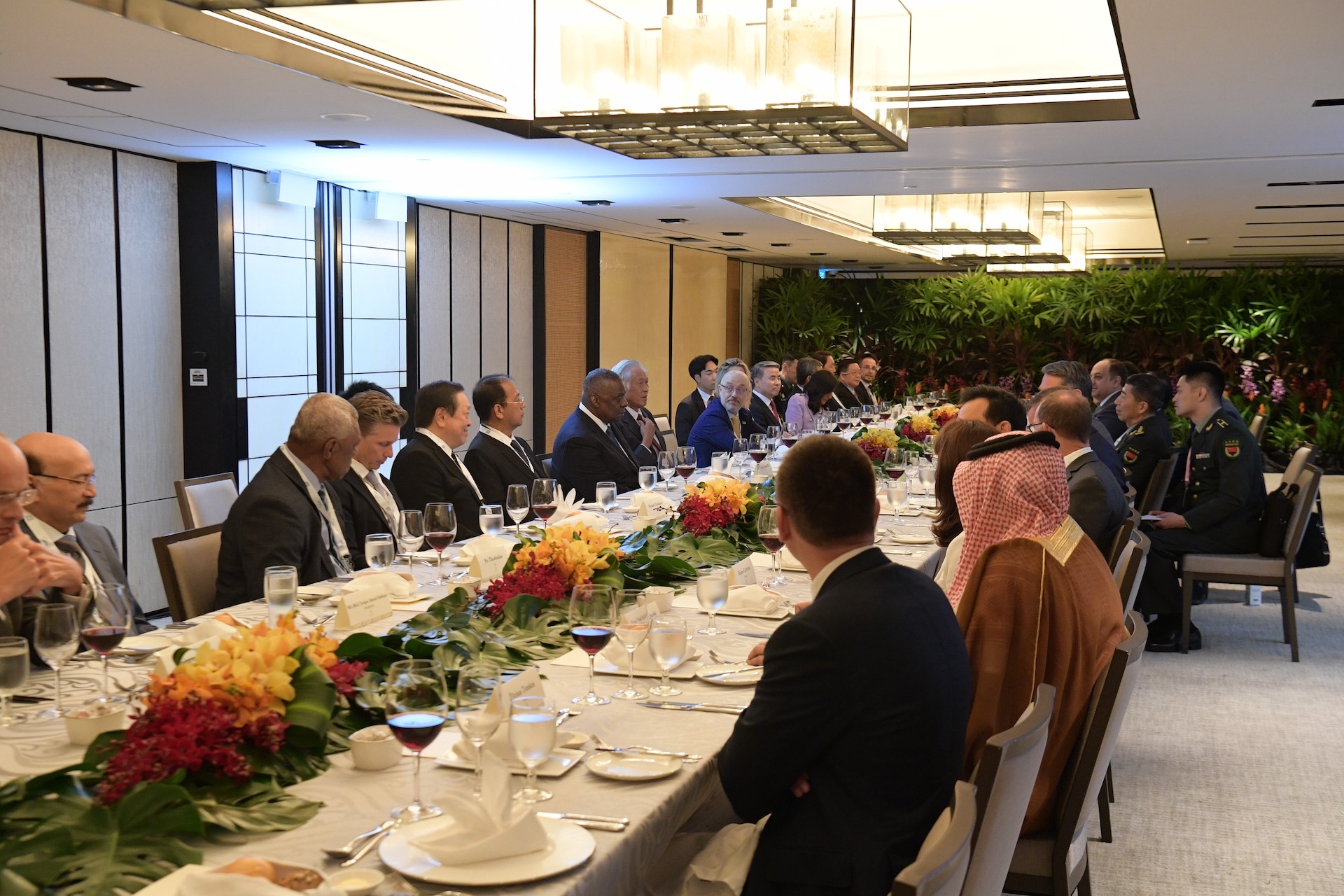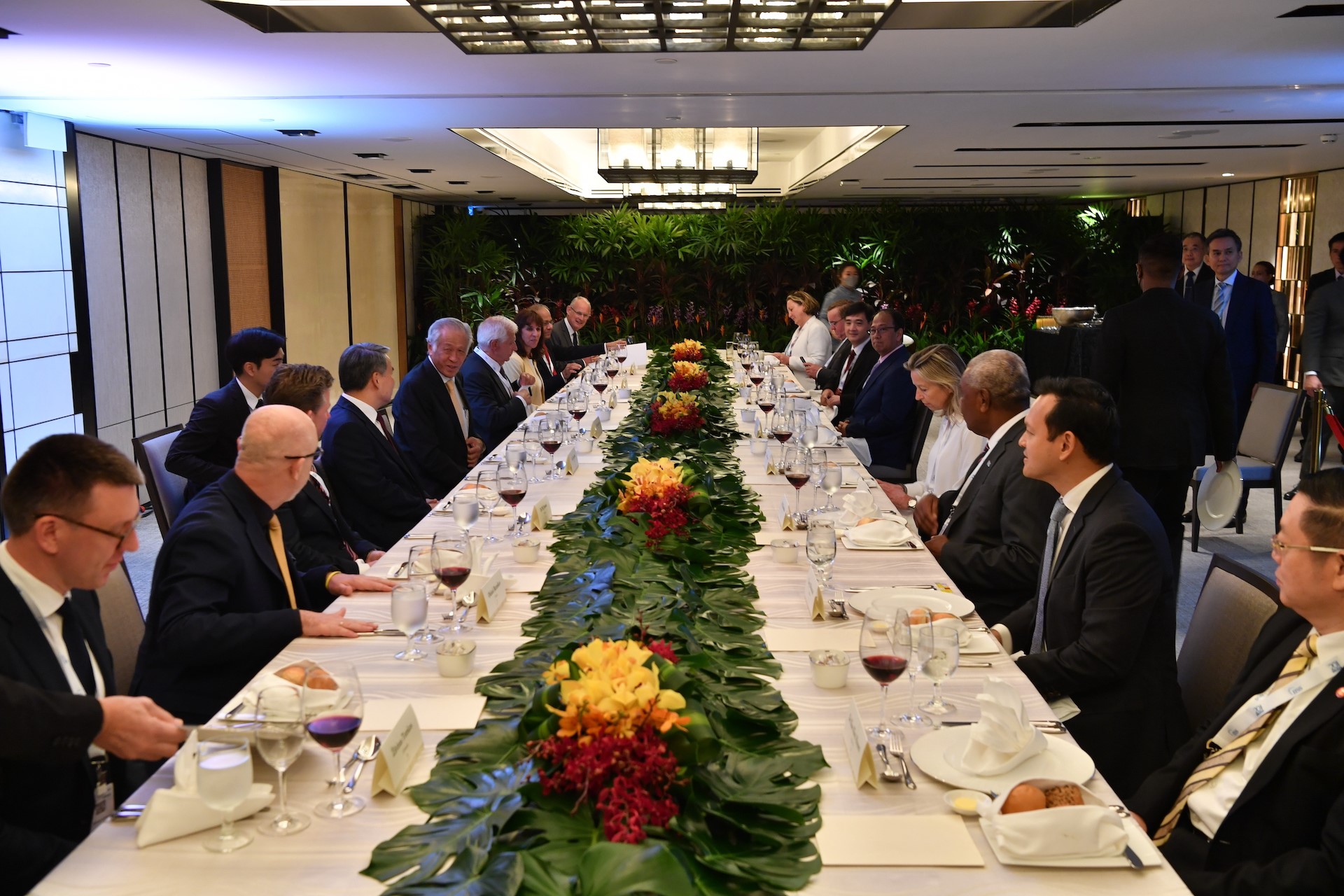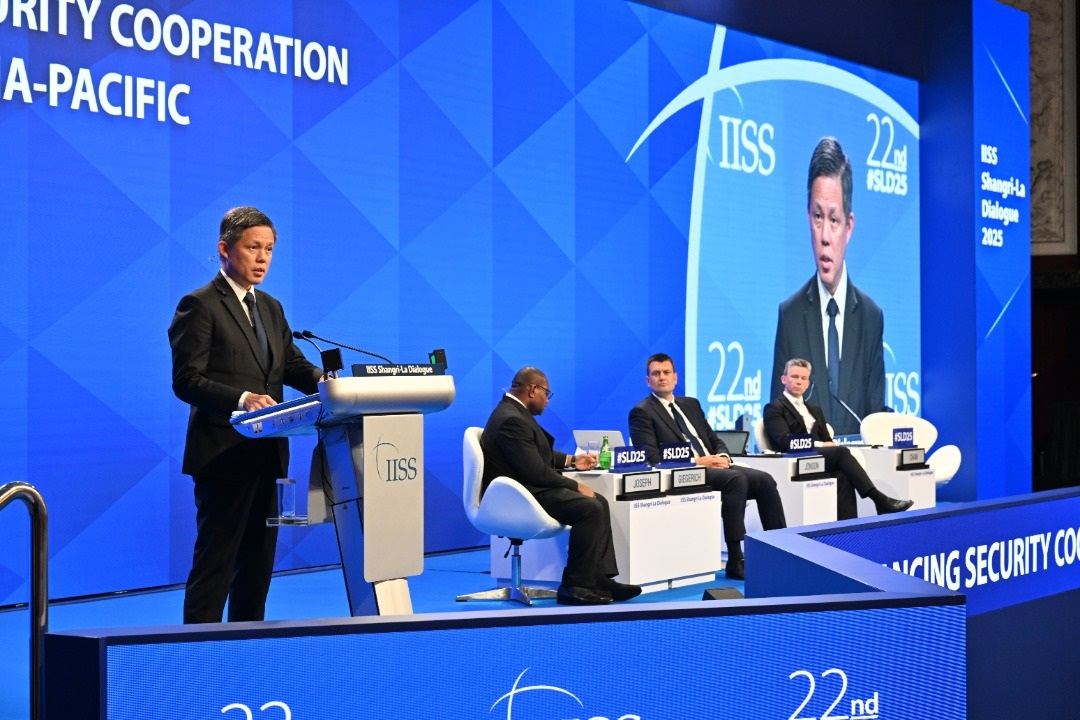DIPLOMACY
Shangri-La Dialogue sees frank discussion of security issues
04 Jun 2023
The 20th Shangri-La Dialogue, held from 2 to 4 Jun, saw ministers from around the world meet in Singapore to discuss key defence and security issues.
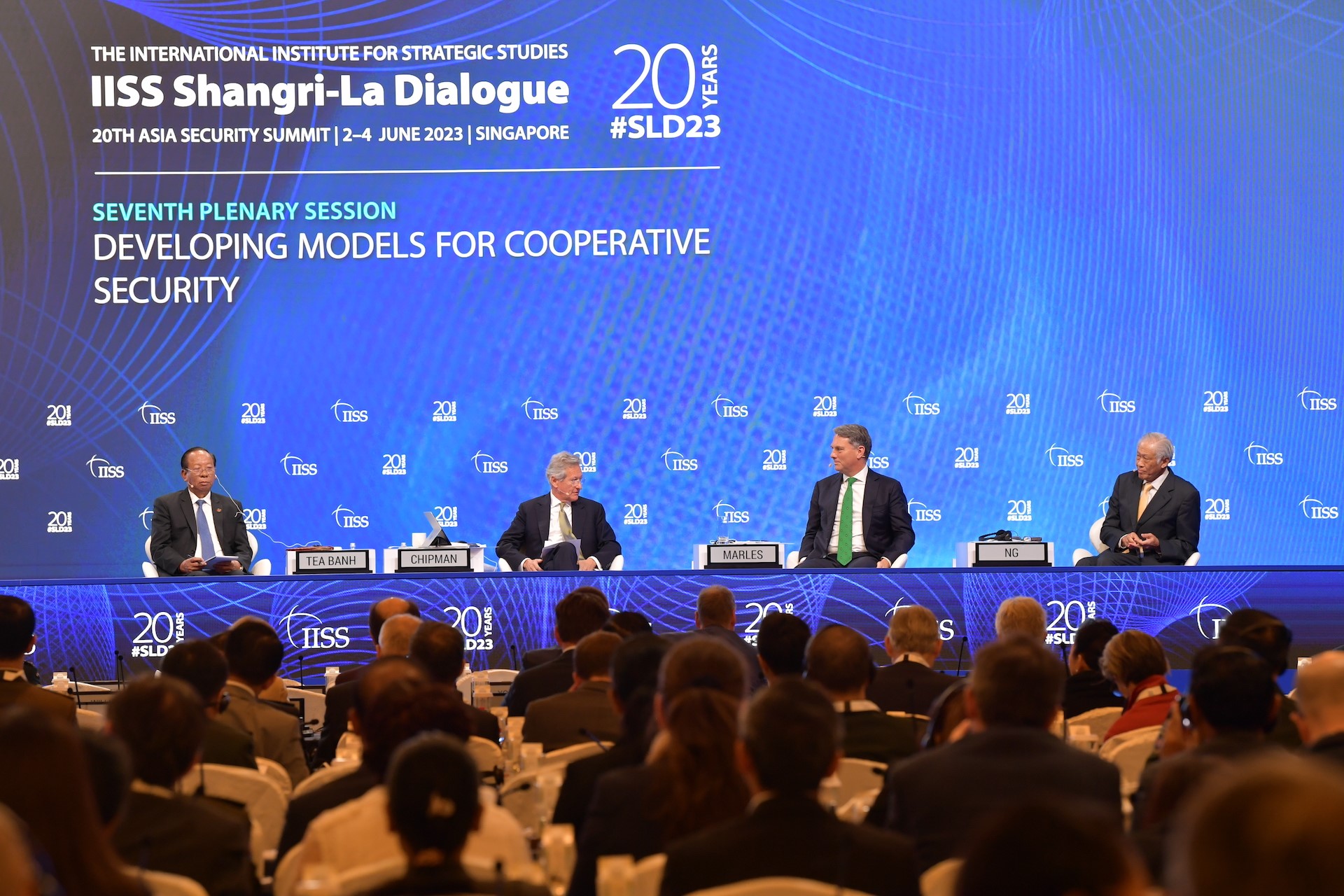
The premier security summit in this region, the Shangri-La Dialogue (SLD), saw defence ministers from around the world gather in Singapore to discuss key security challenges confronting the world today.
The summit was attended by 41 countries, with 48 Ministerial-level delegates and more than 35 senior defence officials over the weekend of 2 to 4 Jun.
High-level participants include United States Secretary of Defense Lloyd J. Austin III and Chinese State Councilor and Minister of National Defense General (GEN) Li Shangfu.
Here are some of the things that went down during the dialogue:
1. Singapore & Japan signed agreement on transfer of defence equipment & tech
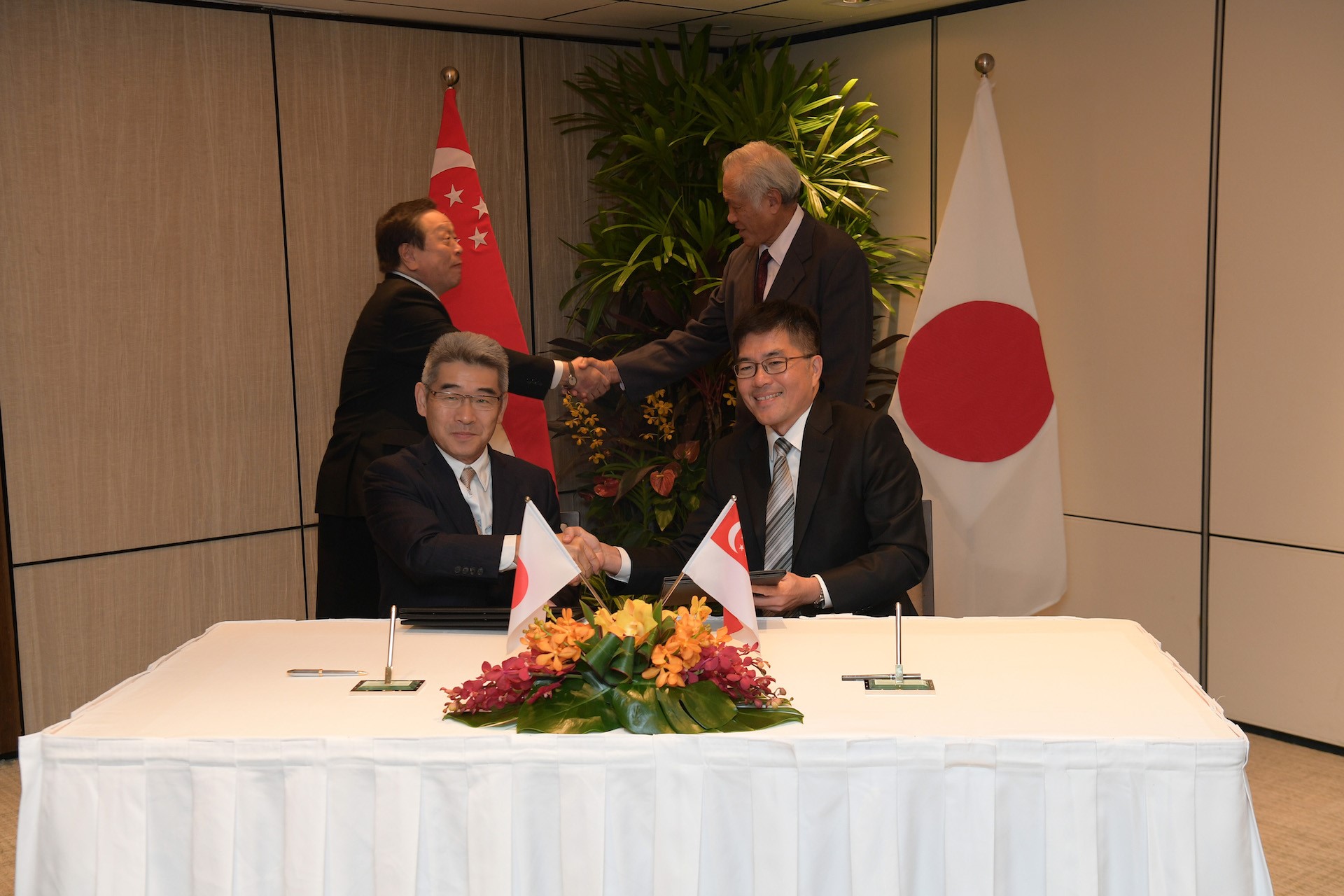
Singapore and Japan signed an agreement concerning the Transfer of Defense Equipment and Technology. This follows a memorandum signed in June 2022, that established a legal framework for the import and export of defence equipment and technology between the two countries.
The agreement will provide the Singapore Armed Forces with more options to meet its training and operational requirements.
Permanent Secretary (Defence Development) Melvyn Ong and Japan Ambassador to Singapore His Excellency Ishikawa Hiroshi signed the agreement, and were witnessed by Singapore Defence Minister Dr Ng Eng Hen and Japan Minister of Defense Hamada Yasukazu.
2. Singapore & the Philippines signed Arrangement to strengthen HADR cooperation
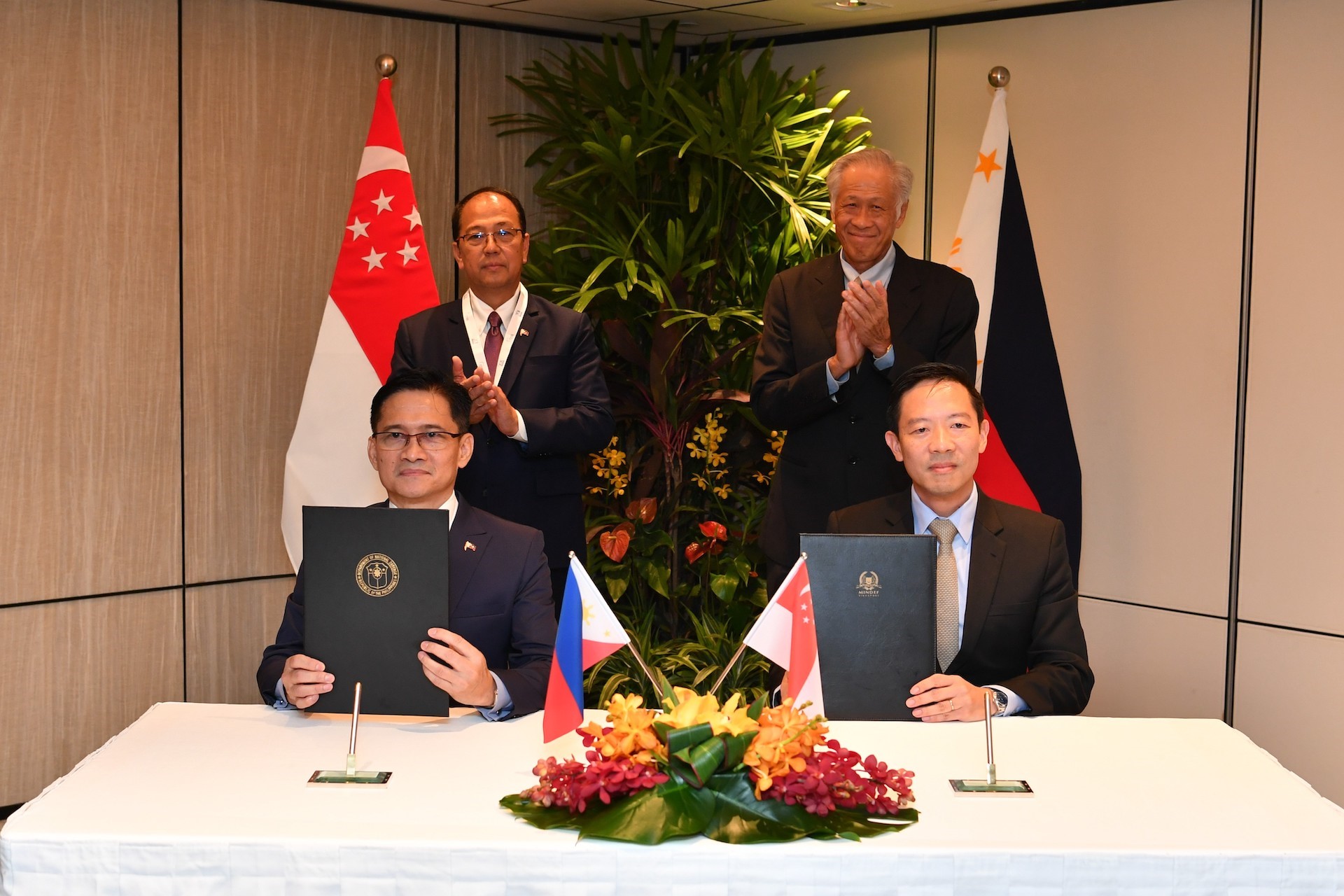
Singapore and the Philippines signed an agreement to strengthen cooperation during Humanitarian Assistance and Disaster Relief (HADR) operations.
It outlined the conduct of education, training assistance and support activities during such operations, and further deepened the bilateral defence cooperation between the two armed forces.
Singapore Deputy Secretary (Policy) Brigadier-General Kelvin Fan and Philippines Assistant Secretary Strategic Assessment and International Affairs Pablo M. Lorenzo signed the Arrangement, and were witnessed by Dr Ng and Philippines Officer-In-Charge and Senior Undersecretary of Defense Carlito Galvez Jr.
3. Dr Ng hosted a total of 44 visiting ministers and their representatives over two roundtable discussions
Dr Ng hosted 29 visiting ministers and their representatives to a roundtable discussion on 3 Jun, and another 15 visiting ministers on 4 Jun.
The ministers spoke about a range of issues from the Russia-Ukraine war to the impact of US-China tensions on the Asia-Pacific region.
Speaking to the media after the 3 Jun roundtable, Dr Ng said: "There was a real sincerity, an urgency, that what happened in Ukraine must not happen in Asia."
"Because as many ministers have said, if you have simultaneous war in Europe and Asia, it's catastrophic. I would say that was the prevailing mood."
On US-China relations, Dr Ng added that the two powerhouses have said that they do want open lines of communications. "Part of the meeting in Shangri-La Dialogue is to everyone… priceless and almost a non-substitutable element… These relationships are very important."
4. Dr Ng met with counterparts from around the world; hosted FPDA breakfast
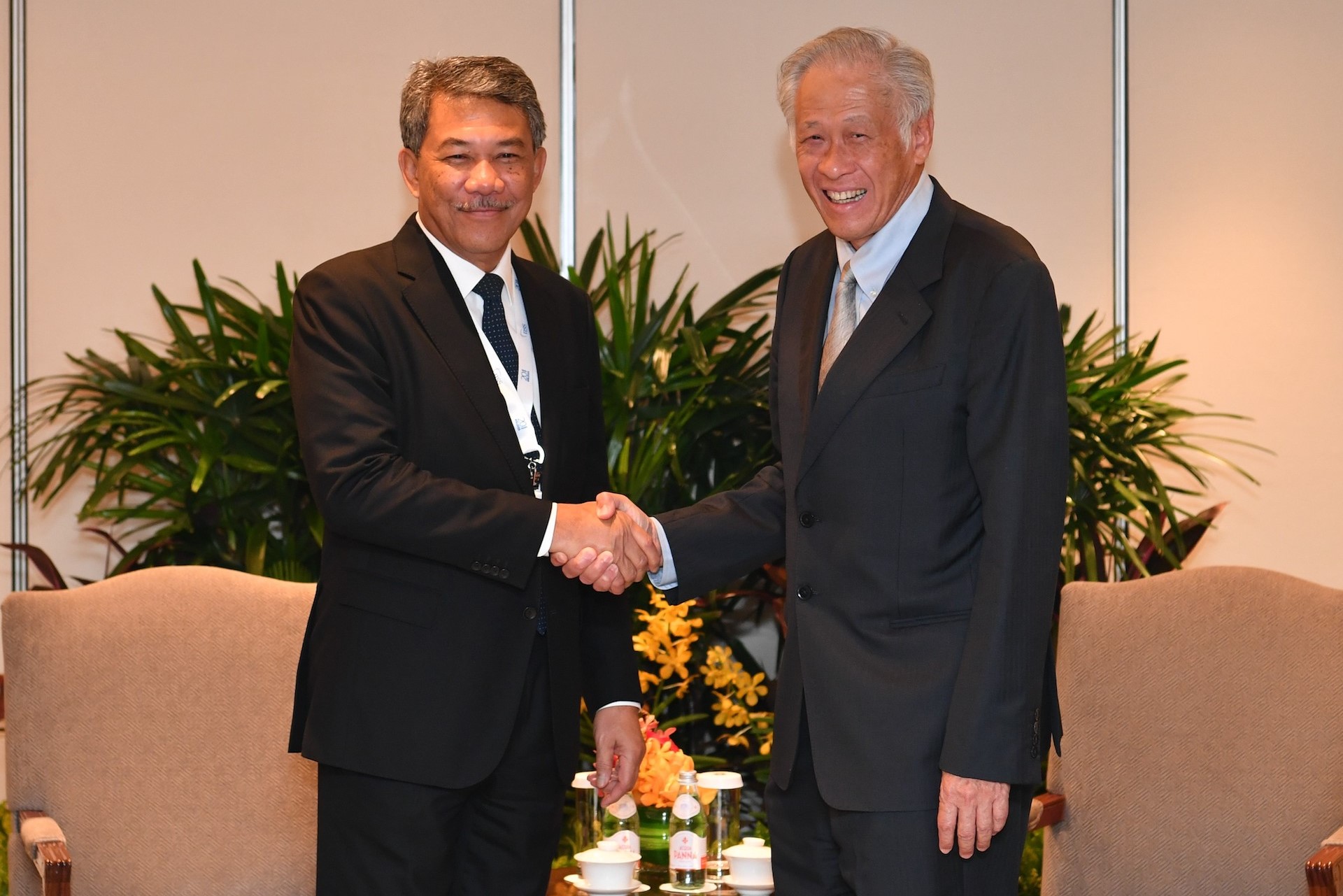
Dr Ng met with his counterparts from the region and beyond, including Malaysian Minister of Defence, Dato' Seri Mohamad Hasan on 2 Jun.
The two ministers reaffirmed their mutual dedication to deepening trust, expanding collaboration, and enhancing the partnership between both defence establishments.
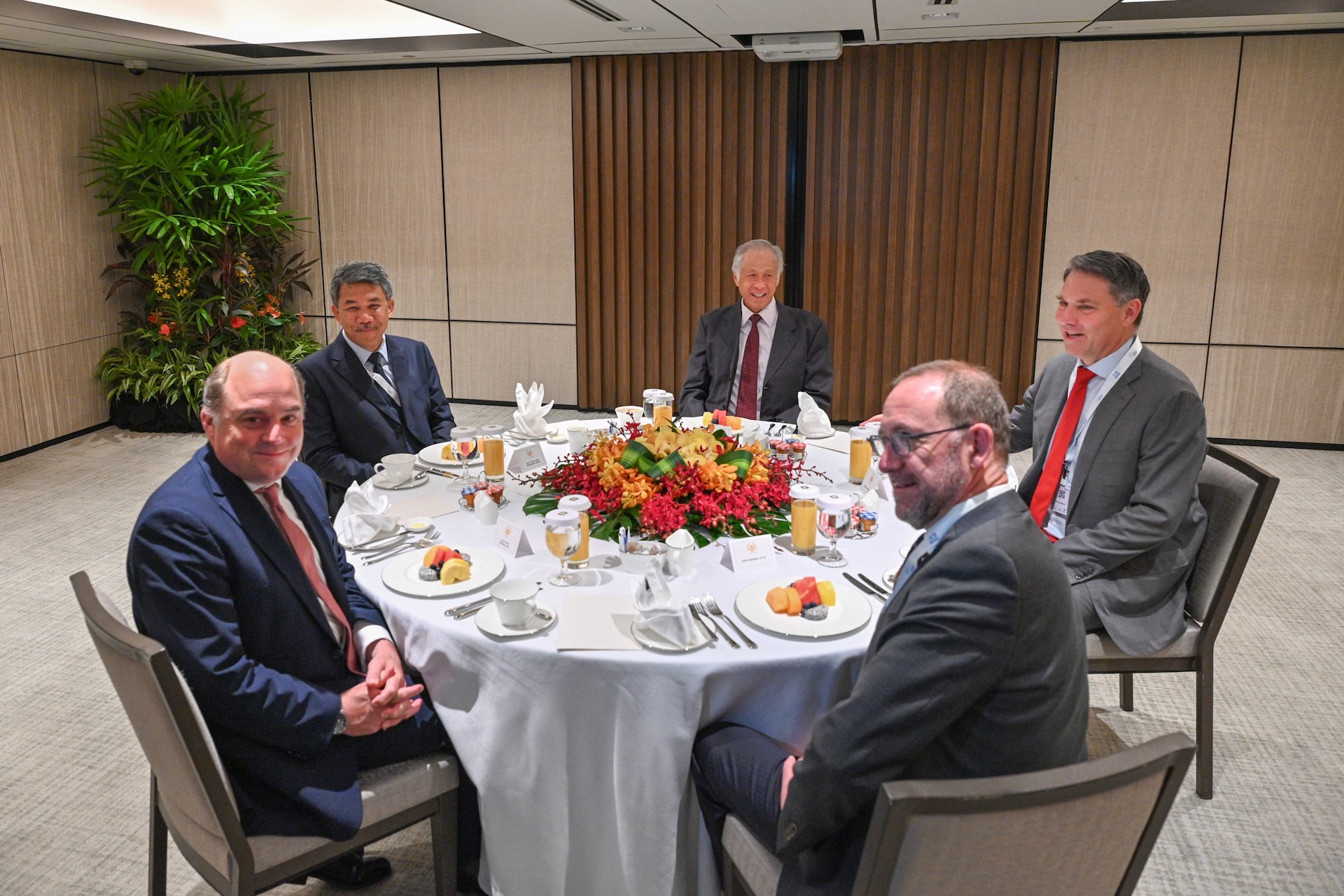
Dr Ng also hosted breakfast for defence ministers of the Five Power Defence Arrangements (FPDA) on 3 Jun: his counterparts from Australia, Malaysia, New Zealand and the United Kingdom.
The ministers reaffirmed their nations' commitment to the FPDA and acknowledged the importance of the FPDA as a constructive arrangement, which has served as an anchor for regional security and stability.
5. Dr Ng highlighted the importance of open lines of communication in his plenary speech
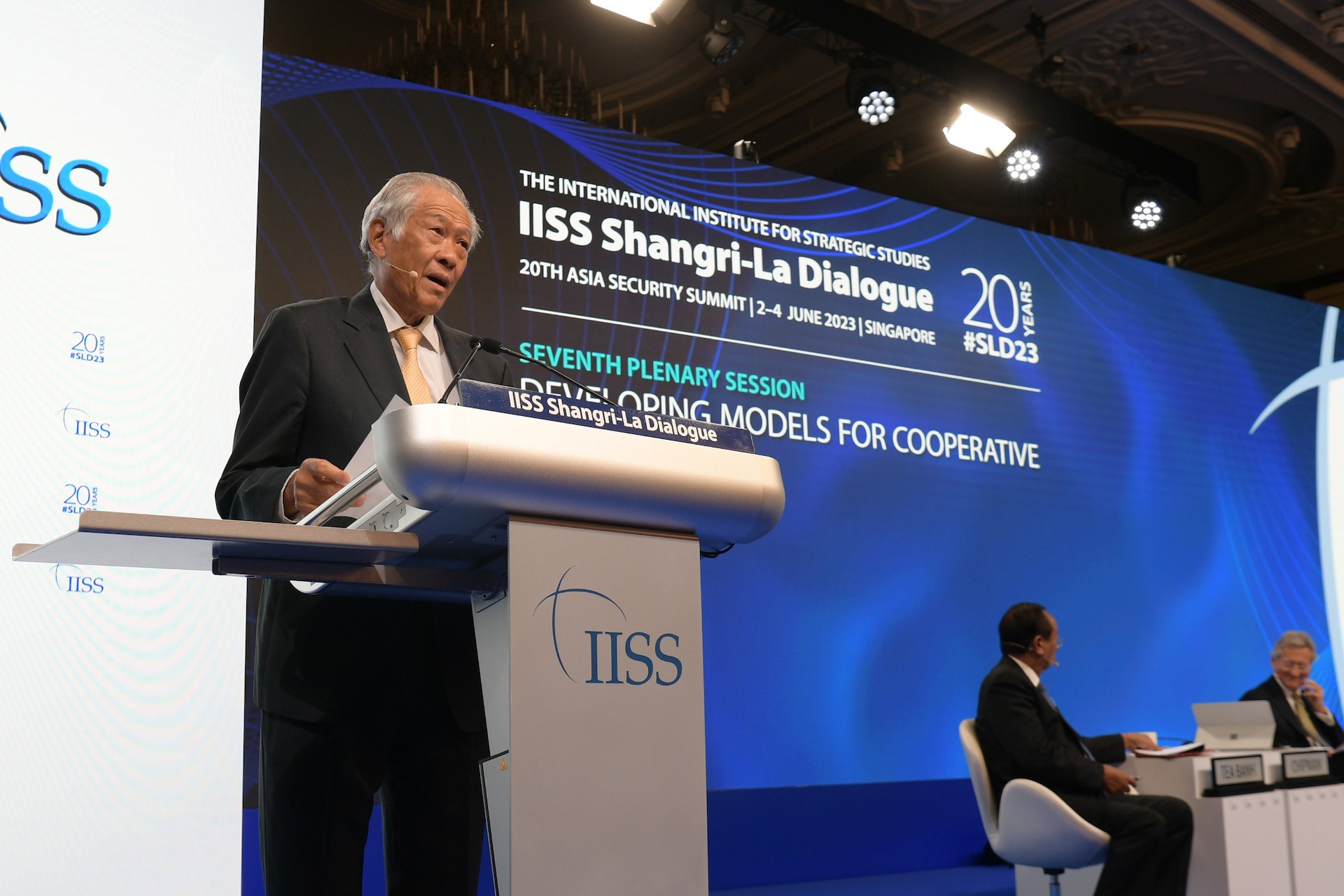
Dr Ng said that channels of communication must be built up to avoid conflict between countries.
Speaking at the seventh plenary session titled "Developing Models for Cooperative Security", he said that SLD has grown over the years, with over 600 delegates from more than 40 countries attending in 2023.
"We can take heart in this expansion, as a clear sign that countries recognise the need and value of face-to-face engagements, not only when circumstances and relationships are favourable but even more so, in testing times."
He added: "Channels of communications – both formal and informal – must exist so that when unplanned incidents occur, they can be used to de-escalate and avoid conflict."
ALSO READ IN DIPLOMACY
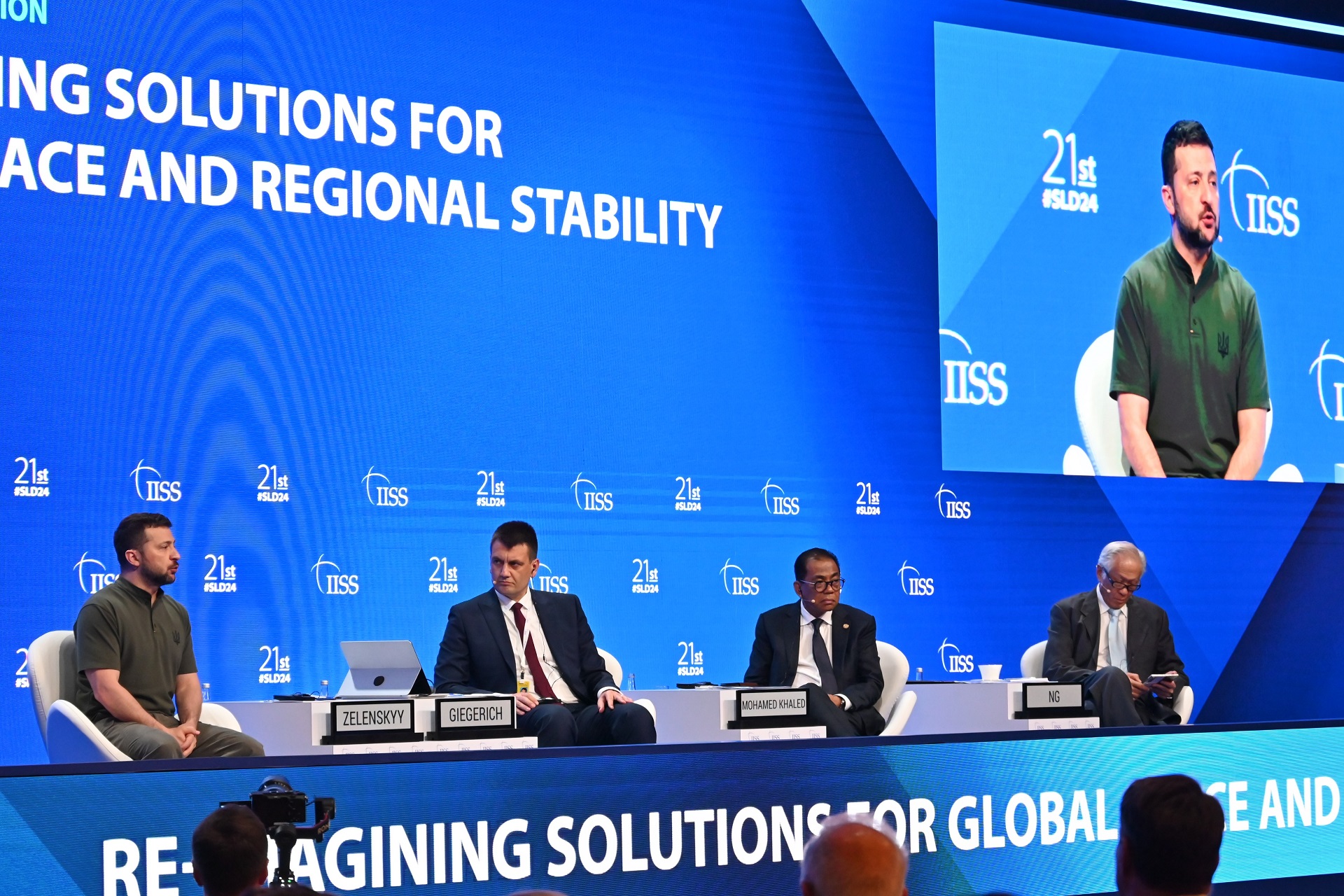
A call for peace at Shangri La Dialogue
02 Jun 2024
A repeated call for peace, especially in Asia. This was Minister for Defence Dr Ng Eng Hen's central message at the 21st Shangri La Dialogue (SLD), held from 31 May to 2 Jun.
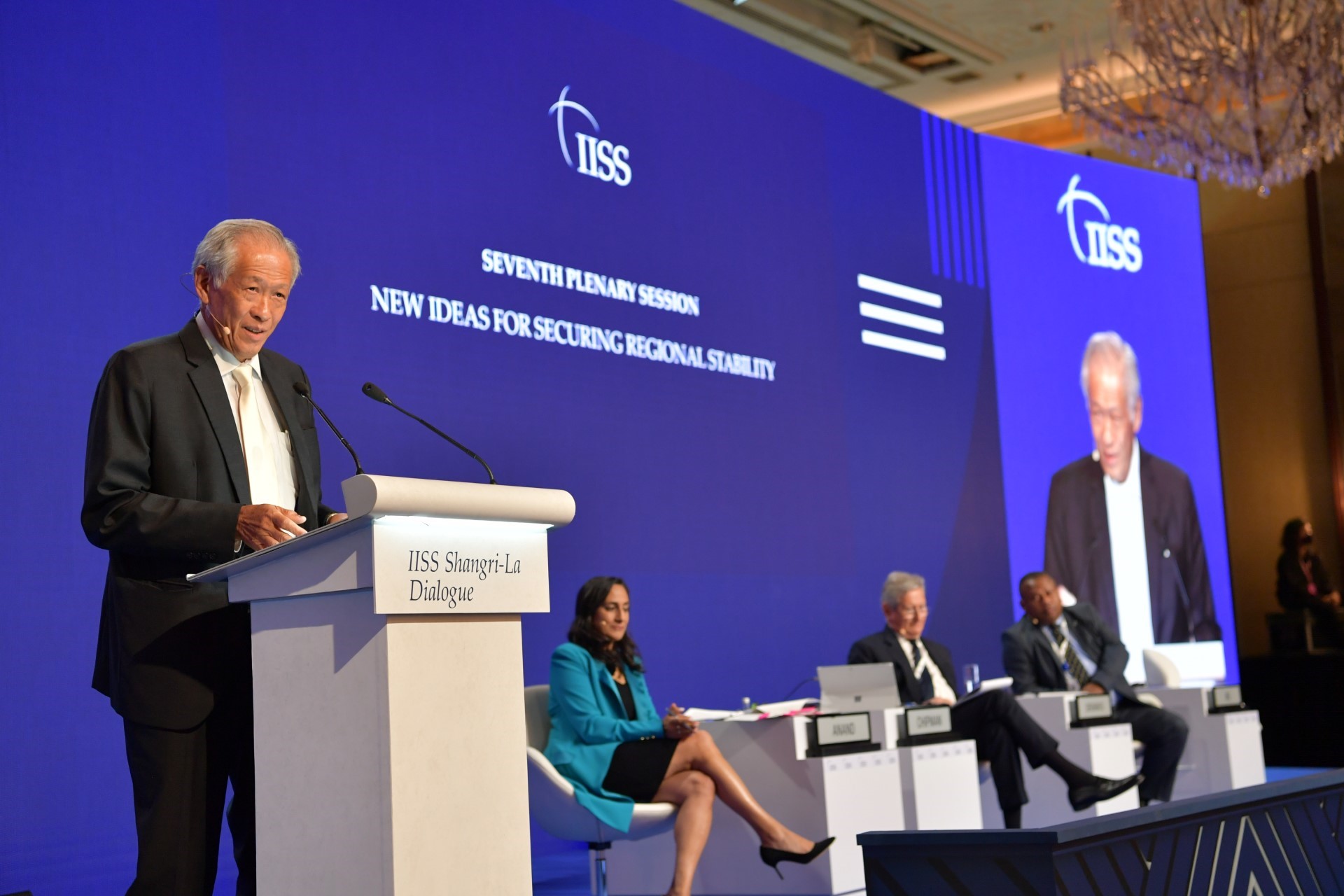
SLD remains valuable platform for crucial discussions: Dr Ng
12 Jun 2022
Minister for Defence Dr Ng Eng Hen spoke on the US-China relationship, the importance of a rules-based order and the role of ASEAN as a regional security platform at the 19th Shangri-La Dialogue (SLD).
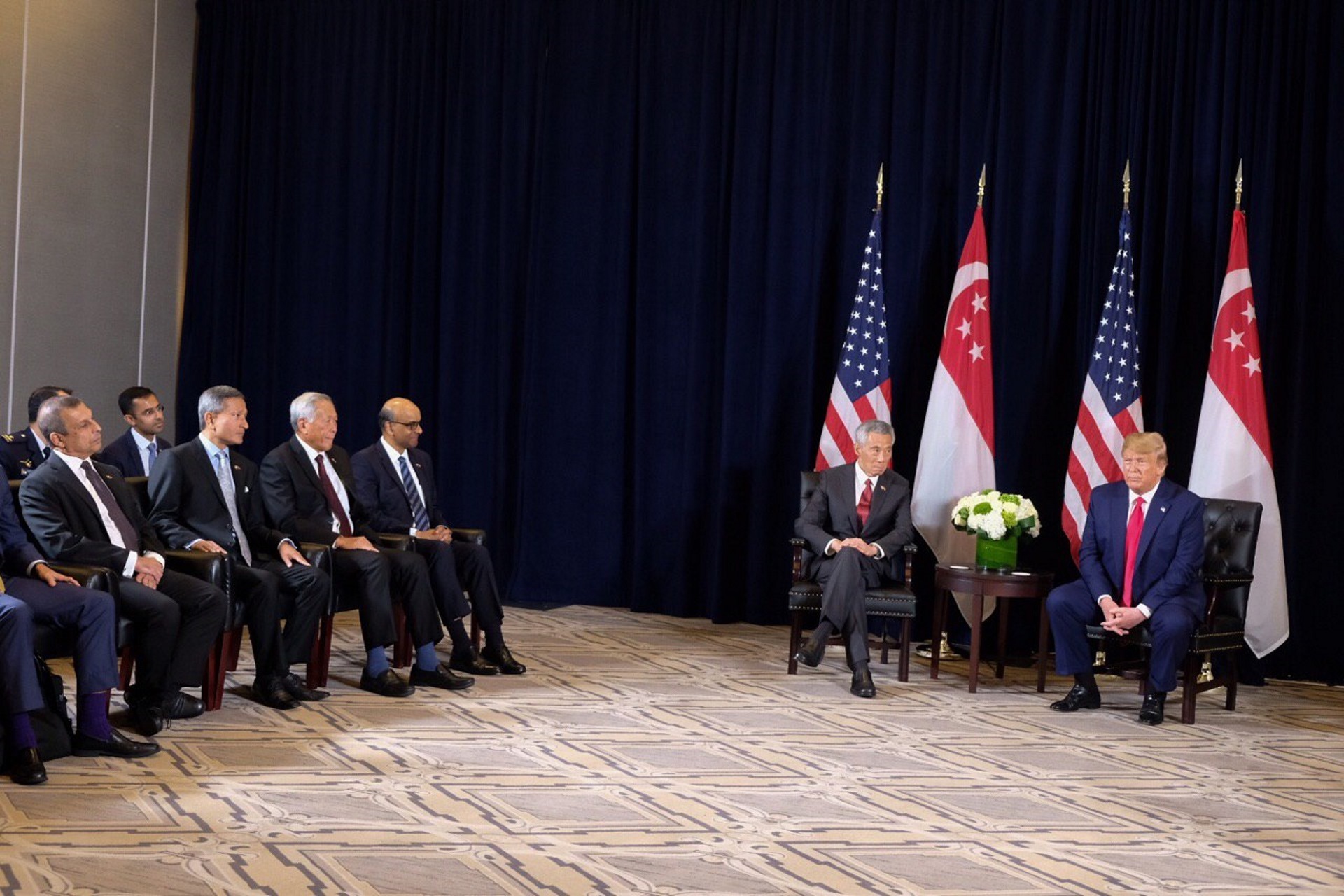
S’pore and US renew defence agreement
25 Sep 2019
Prime Minister Lee Hsien Loong and United States (US) President Donald Trump signed an agreement to renew the 1990 Memorandum of Understanding (MOU) Regarding United States' Use of Facilities in Singapore on 24 Sep.

